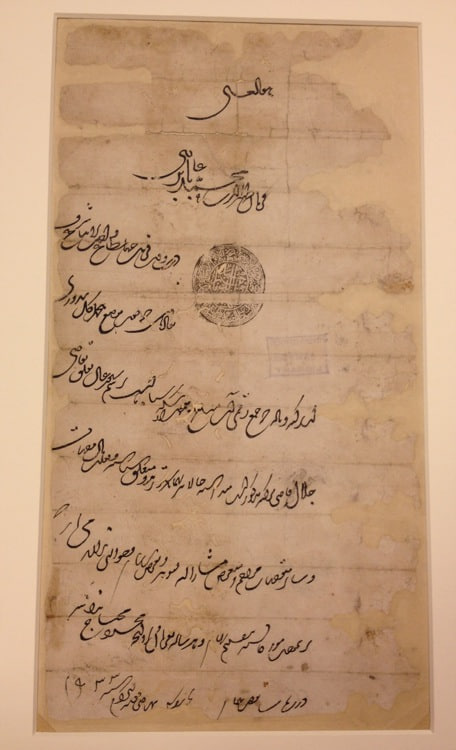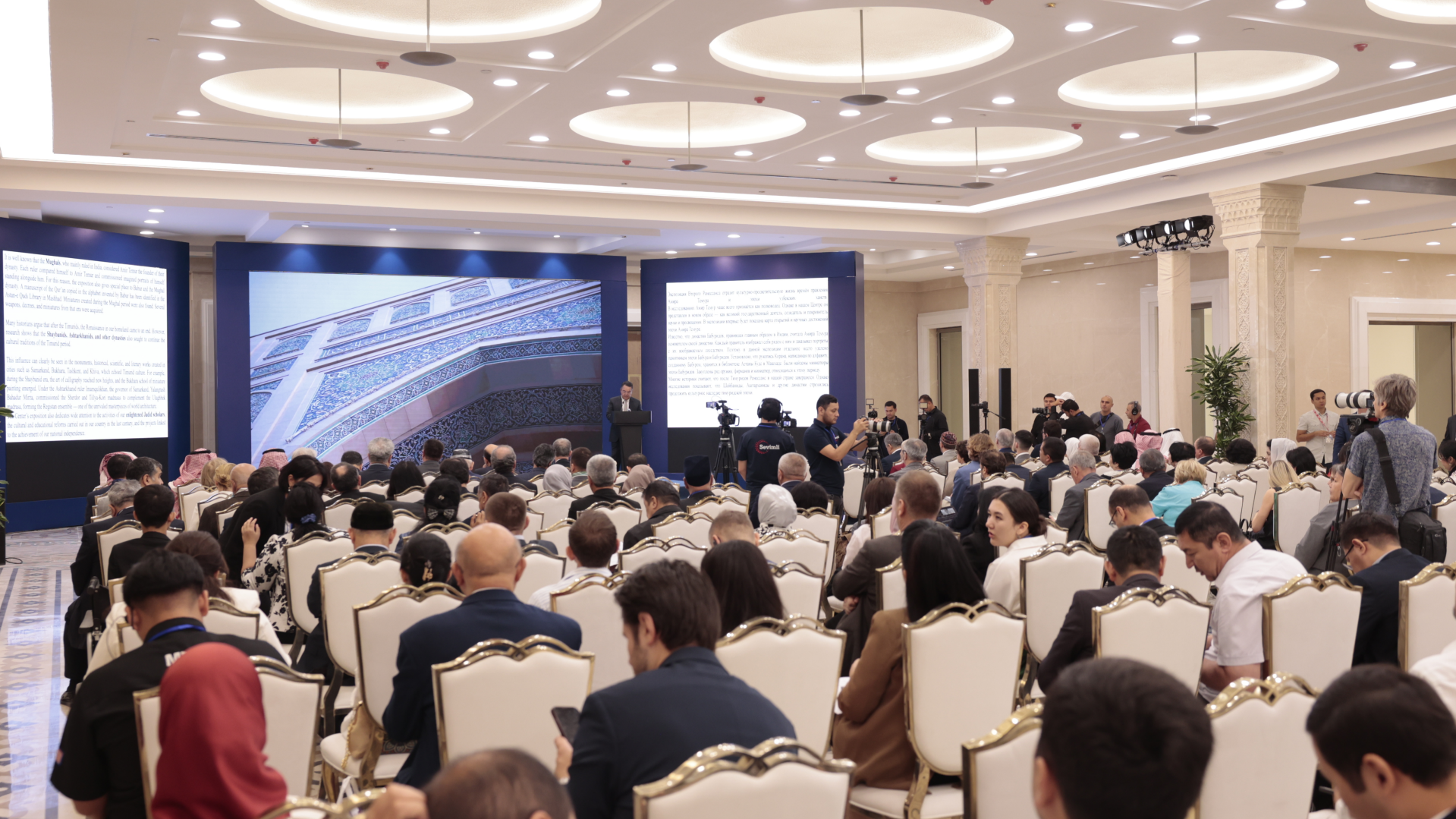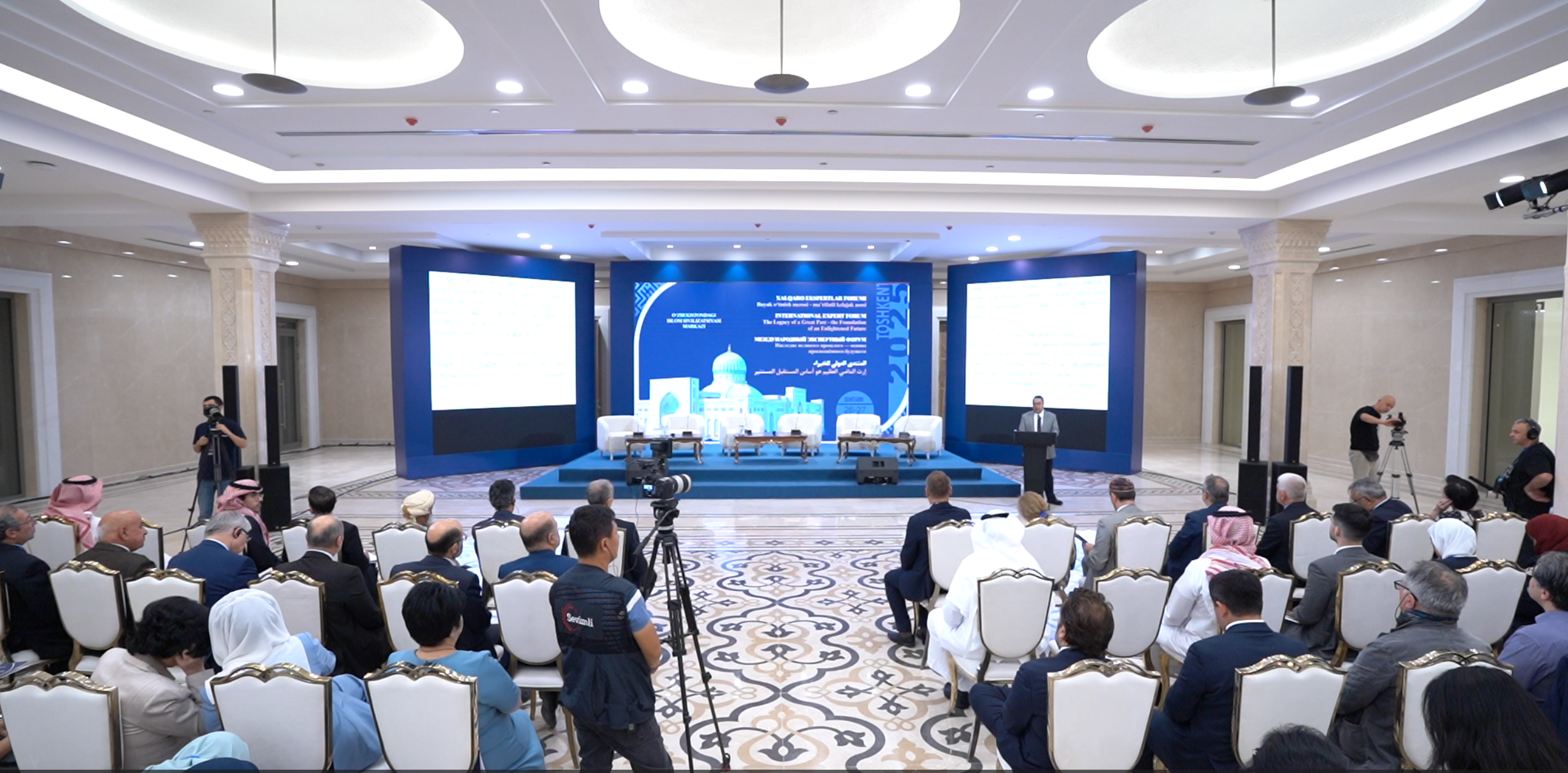A facsimile copy of a decree issued by Babur will be prepared
 A facsimile copy of a decree issued by Zahiriddin Muhammad Babur will be prepared for the exhibition at the Center of Islamic Civilization in Uzbekistan. This decree was written on the 13th (or possibly the 30th) of the month of Dhu al-Qa'dah in the year 933 AH (August 1527 CE), a few months after Babur's decisive victory over Rana Sanga of Mewar and his allies at the Battle of Khanwa in March 1527. The decree was issued in the name of Babur, who had adopted the title “Holy Warrior” following his recent triumph, and it granted the village of Panchal Gul Pinduri in the Batala pargana of Punjab as an inheritable estate (suyurgal) to Jalaluddin.
A facsimile copy of a decree issued by Zahiriddin Muhammad Babur will be prepared for the exhibition at the Center of Islamic Civilization in Uzbekistan. This decree was written on the 13th (or possibly the 30th) of the month of Dhu al-Qa'dah in the year 933 AH (August 1527 CE), a few months after Babur's decisive victory over Rana Sanga of Mewar and his allies at the Battle of Khanwa in March 1527. The decree was issued in the name of Babur, who had adopted the title “Holy Warrior” following his recent triumph, and it granted the village of Panchal Gul Pinduri in the Batala pargana of Punjab as an inheritable estate (suyurgal) to Jalaluddin.
Very few original documents from Babur’s reign have survived. The early date of this document suggests that during the Mughal era, new grants were required to confirm positions previously held during the rule of the Delhi-based Lodi Sultans, such as Jalaluddin’s. The use of the term "pargana"—a collection of villages recognized as an administrative unit since the 14th century in official usage across India—indicates that the Mughals continued to utilize existing administrative frameworks. However, the estate itself is referred to as a "suyurgal," a Mongol-derived term for hereditary property. Other new terms, such as "mutavajjihat" and "mal-u jihat," refer to types of tax revenues, and appear in 15th-century documents from the Turkmen and Timurid dynasties, which governed large parts of Iran.
Most read

Over 100 experts from more than 20 countries of the world are in Tashkent!

President of Serbia Aleksandar Vučić visited the Islamic Civilization Center in Uzbekistan

The Center for Islamic Civilization – a global platform leading towards enlightenment











